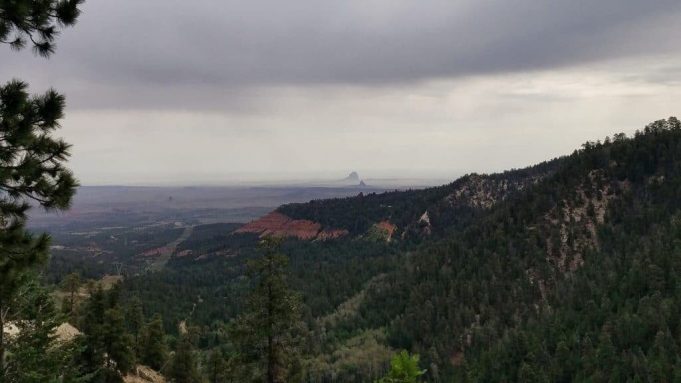This is Lucy, a 3.18 million year old fossil specimen of Australopithecus afarensis.Credit: Image provided by John Kappelman, UT Austin
Lucy, the most famous fossil of a human ancestor, probably died after falling from a tree, according to a study...
Virtual reconstructions of the Xuchang 1 and 2 human crania are superimposed on the archeological site where they were discovered.Credit: Xiujie Wu
Two partial archaic human skulls, from the Lingjing site, Xuchang, central China, provide a new window into the...
When Jaime Yazzie began planning her research for her forestry thesis, her adviser asked her what species of trees she wanted to save. They would use a computer simulation to measure the effects of a warming, drying environment, and...
Every culture enjoys music and song, and those songs serve many different purposes: accompanying a dance, soothing an infant, or expressing love. Now, after analyzing recordings from all around the world, researchers reporting in Current Biology on January 25 show that...
New research suggests that modern Scandinavians are not descended from the people who came to Scandinavia at the conclusion of the last ice age but, apparently, from a population that arrived later, concurrently with the introduction of agriculture.
Credit: iStockphoto/Jean...
Scholars from Rice University, University College London and the Field Museum have found the first direct evidence that glass was produced in sub-Saharan Africa centuries before the arrival of Europeans, a finding that the researchers said represents a "new...
The shapes of the fossil and modern footprints are nearly indistinguishable.Credit: Kevin Hatala / Max Planck Institute for Evolutionary Anthropology
Fossil bones and stone tools can tell us a lot about human evolution, but certain dynamic behaviours of our fossil...
Tympanic membrane (grey), ossicular chain (yellow, green, red), and bony inner ear (blue) of a modern human with a One-Eurocent coin for scale.© A. Stoessel & P. Gunz
A research team led by scientists of the Max Planck Institute for...
Small populations, inbreeding, and random demographic fluctuations could have been enough to cause Neanderthal extinction, according to a study published November 27, 2019 in the open-access journal PLOS ONE by Krist Vaesen from Eindhoven University of Technology, the Netherlands, and colleagues.
Paleoanthropologists...
An international team, led by researchers from the Max Planck Institute for the Science of Human History (MPI-SHH), Harvard University and the Mexican National Institute of Anthropology and History (INAH), has used ancient DNA and a new data processing...
Scientists have proved one of Charles Darwin's theories of evolution for the first time—nearly 140 years after his death.
Laura van Holstein, a Ph.D. student in Biological Anthropology at St John's College, University of Cambridge, and lead author of the...

















